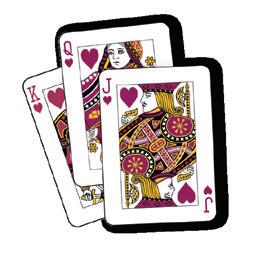






04 Dear Torah Tidbits Family
Rabbi Avi Berman
06 The Indivisibility of the Jewish People
08
18
Rabbi Moshe Hauer
Aliya By Aliya Sedra Summary
Rabbi Reuven Tradburks
"Only What They Want to Hear"
Rabbi Dr. Tzvi Hersh Weinreb
24 What Makes God Laugh
32
36
38
Rabbi Lord Jonathan Sacks zt"l
OU Israel Schedule

Probing the Prophets
Rabbi Nachman Winkler
The Power of a Mitzva
Rabbi Shalom Rosner
42 Relationship Revealed
Rebbetzin Shira Smiles
44 Yud Beis Tamuz: Obligation!
46
48
52
54
Rabbi Judah Mischel
Simchat Shmuel
Rabbi Sam Shor
The Keini Challenge
Rabbi Moshe Taragin
Haftorah Insights
Rebbetzin Dr. Adina Shmidman
Becoming an "Erev Shabbos Jew"
Rebbetzin Zemira Ozarowski
56 Using Dishes of an Unknown Type
58
Rabbi Daniel Mann
Bilaam or Avraham
Rakel Berenbaum
60 The Y- Files Weekly Comic
62
Netanel Epstein
Torah 4 Teens by Teens
Rabbi Yosef Ginsberg // Hillel Smolarcik
Last Opportunity to Say Kiddush Levana: Until 14 Tammuz, Sunday night July 2nd, all night. The Fast of the "17th Day of Tamuz" is observed on Thursday July 6th. Fast ends 8:09pm (Jerusalem).
R av, Beit Knesset Beit Yisrael, Yemin Moshe
In memory of my mother's yarzheit - Shirley Yaffa Yeres on 15th of Tammuz - Chaya Shaindel bat Alexander Halevi z"l) )ז"ל:ב"כ( ךדבכ לכוא אל םנמאה.....םעלב
"And Balak said to Bilaam…will I truly not be able to honor you? (22:37)
What was Balak hinting to Bilaam? Rashi answers that Balak was prophesizing unwittingly that Bilaam would eventually leave him in disgrace.
The Dubno Maggid (1740-1804) pointed out that this situation is analogous to a doctor who, after examining his patient, asked to be paid already in full before evening administering any treatment. The family member who had summoned the doctor was surprised and responded: "It seems that you have given up hope on this ill person. The fact that you are asking to be paid in full up front, implies that you feel there is no chance of survival. That’s why you want your money now."
So too, this is what Balak said to Bilaam. Don't you think that I will be able to honor you?
Why do you insist that I show you all the honor immediately, up front? Is there some reason that you fear that I won't be able to honor you later, meaning that you won't succeed in your task?
Here we see how Balak, unintentionally, hints to the fact that Bilaam will ultimately fail and not be able to help him curse the Israelites.
- Shabbat ShalomRanges 11 days Wed - Shabbat
June 28 - July 8 / 9 - 19 Tammuz Earliest Tallit and Tefillin
- 4:41
- 5:40
- 9:12
- 10:22 (According to the Gra and Baal HaTanya)
- 12:44
-
Seymour J. Abrams • Orthodox Union Jerusalem World Center • Avrom Silver Jerusalem College for Adults • Wolinetz
Family Shul • Makom BaLev • Birthright • Yachad • NCSY in Israel • JLIC in Israel • Camp Dror • Pearl & Harold M. Jacobs ZULA Outreach Center • The Jack Gindi Oraita Program • OU Israel Kashrut
STUART HERSHKOWITZ, PRESIDENT OU ISRAEL
Zvi Sand / Yitzchak Fund: Former Presidents, OU Israel | Rabbi Emanuel Quint z”l, Senior Vice President | Prof. Meni Koslowsky, Vice President
VAAD MEMBERS:
Michael Elman | Yonatan Frankel | Yitchak Fund | Daniella Hellerstein | Stuart Hershkowitz | Jeremy Lustman | Meir Raskas | Atara Reichel | Zvi Sand | Norman Schmutter | Mark Schneider | Esther Williams
RABBI AVI BERMAN, EXECUTIVE DIRECTOR, OU ISRAEL
All Times According to MyZmanim (20 mins before Sunset in most Cities; 40 mins in Yerushalyim and Petach Tikva; 30 mins in Tzfat and Haifa)
OU Kashrut NCSY Jewish Action JLIC NJCD / Yachad / Our Way OU West Coast OU Press Synagogue/Community Services OU Advocacy OU Israel
MITCHEL R. AEDER, PRESIDENT OF THE ORTHODOX UNION Yehuda Neuberger, Chairman of the Board, Orthodox Union | Dr. Josh Penn, OU Kashrus Commission
RABBI MOSHE HAUER, EXECUTIVE VICE PRESIDENT | RABBI JOSHUA M. JOSEPH, ED.D. EXECUTIVE VICE PRESIDENT & CHIEF OPERATING OFFICER
Rabbi Dr. Tzvi Hersh Weinreb, Exec. V.P. Emeritus
OU KOSHER: Rabbi Menachem Genack, CEO/Rabbinic Administrator OU Kosher | Rabbi Moshe Elefant, COO/Executive Rabbinic Coordinator ISRAEL: Rabbi Yissachar Dov Krakowski, Rabbinic Administrator | Rabbi Ezra Friedman, The Gustave and Carol Jacobs Center for Kashrut Education/ Deputy Rabbinic Administrator Headquarters: 40 Rector St. 4th floor, New York, NY 10006 212-563-4000 website: www.ou.org
Editor Emeritus: Phil Chernofsky
Editor: Rabbi Aaron Goldscheider | aarong@ouisrael.org
Advertising: Ita Rochel | 02-5609125 or ttads@ouisrael.org
Website: www.torahtidbits.com
Not getting enough TTs? Too many? None at all? Contact our DISTRIBUTION 050-577-2111 • ttdist@ouisrael.org
David Katz, CFO, OU Israel | Chaim Pelzner, Director of Programs, OU Israel | Rabbi Sam Shor, Director of Programs, OU Israel Center | Rabbi Sholom Gold, Dean, Avrom Silver Jerusalem College for Adults
22 Keren HaYesod <> POB 1441 <> Jerusalem 9101032
phone: (02) 560 9100 | fax: (02) 561-7432
email: office@ouisrael.org
website: www.ouisrael.org
Founders and initial benefactors of the OU Israel Center: George and Ilse Falk a"h
Torah Tidbits and many of the projects of OU Israel are assisted by grants from THE JERUSALEM MUNICIPALITY
OU Israel, Torah Tidbits does not endorse the political or halachic positions of its editor, columnists or advertisers, nor guarantee the quality of advertised services or products. Nor do we endorse the kashrut of hotels, restaurants, caterers or food products that are advertised in TT (except, of course, those under OU-Israel hashgacha). Any "promises" made in ads are the sole responsibility of the advertisers and not that of OU Israel, the OU Israel Center , Torah Tidbits.

Over the past few months I traveled overseas on various work trips. Reuniting with many students, families, colleagues and friends, I prepared myself for the standard questions I know I’ll receive. “Avi, help me explain the building of settlements to my co-workers.” Or, “Avi, I know there must have been a reason why the IDF attacked Gaza, but I can’t get a reasonable answer from the mainstream newspapers. Can you clarify what is really happening?” These questions are usually followed by a positive and dynamic discussion.
But I returned from my most recent trip abroad with a heavy heart. In contrast to my previous experiences, the questions I received were far more judgmental and disapproving. “Avi, how could people behave this way?” Or, “Things in Israel are really going sideways, eh Avi?” Although their attitudes changed drastically once I explained the political situation, it pained me to think people’s feelings towards Israel were tarnished. Even if only momentarily. These discussions resonate with this week’s Parsha, where we learn about the power of speech. Balak, the King of Moav, summons Bilaam to curse the Jewish people. However, HaShem thwarts his attempts, and instead when Bilaam speaks, he blesses the Jewish people and shares prophecies for the times of Mashiach, many of which are coming to fruition today. I find this story a striking reminder of the responsibility we have to use our words for positive speech.
As someone who remains conscious of the zechut I have to call Eretz Yisrael my home, I feel a responsibility to share its beauty with others. It just so happens that in just four days I’ll celebrate 38 years since my family made aliyah. In the spirit of this week’s parsha, I’ll share some experiences I had during my aliyah that continue to make an impression on me today.
My family made aliyah from New York on the 15th of Tamuz at a time before Nefesh b’Nefesh could ease our aliyah. I remember arriving in Israel with my family on a Thursday afternoon eager to see our new home in Kedumim. After hours of waiting in the airport for our documents to be processed, we arrived at our house exhausted and spent… to see the beauty of Am Yisrael unfold just minutes after entering the front door.
As we put our bags down and began situating ourselves, our neighbors knocked on the door. Between their broken English and my parents’ broken Hebrew, we soon understood that we were being invited to their home for supper and that the
The OU Israel Family sends heartfelt condolences to the family and friends of
community arranged Shabbat meals for us so we could get settled. During dinner my parents reminded us that we would enter Shabbat only after visiting the Kotel, Me’arat Hamachpelah and Kever Rachel, and they had us go to sleep early so we could make the most of the next day.
In the morning we piled into an orange Volkswagen, driven by our cab driver Razi Levy, and embarked on our journey. I vividly remember seeing the Kotel for the first time and gazing upon the walls of the Old City. Throughout that morning I could not contain my excitement for our next destination. In my childhood home my parents hung a large photo of Kever Rachel on our living room wall. I often would find myself staring at it, imagining the stories in the Torah unfolding and wondering what it would feel like to stand so close to history. Finally, I would stand beside Kever Rachel and experience Jewish history up close.
As this was back in 1985, before the Oslo Accords, Razi stopped the car at a nondescript gas station. To my surprise, he got out of the car and casually pointed to Kever Rachel across the street. At first I could not believe that Kever Rachel looked just like the photo in my old living room. But as we crossed the street I thought about the proximity of the mundane gas station to such a holy site. It felt disrespectful to me, and I left Kever Rachel that day feeling deeply upset.
A few months later, during a parshat HaShavuah class, we learned about the passing of Rachel. Our teacher spoke about the fact that Rachel would always be the Em HaDerech, buried where her children could always find her. It occurred to me
then that because the Jewish people continues to thrive and build on the foundations established by our avot and imahot, something as mundane as a gas station continues to tell the story of Rachel - Kever Rachel is truly a stop on the traveler’s way - and it is elevated as a result.
That moment opened my eyes to the realization that my parents brought me to a country filled with our history dating back thousands of years, and it is a country that continues to fulfill the prophecies. I suddenly appreciated that in Israel the Tanach is more than a storybook - it is a map that can teach me about my past. 38 years since making aliyah, this idea still excites me and I try to find opportunities to bring Tanach to life for my own children.
As I approach my aliyah date, I am reminded of the gift I have been given by my parents and HaKadosh Baruch Hu to call Israel my home, and am taking this opportunity to express my gratitude. In the spirit of this parsha, I encourage Torah Tidbits readers to utilize the power of positive speech and gratitude for Eretz Yisrael. This Shabbat, find opportunities to share your journey here and the ways in which your life has been enriched.
May the beauty of Eretz Yisrael continue to inspire us all, and may we continue to merit to see the blessing and prophecies of Bilaam come true.
Wishing you all an uplifting and inspiring Shabbat,
Rabbi Avi Berman Executive Director, OU Israel aberman@ouisrael.org MOSHE HAUER
OU EXECUTIVE VICE PRESIDENT
MOSHE HAUER
OU EXECUTIVE VICE PRESIDENT
On October 8, 1913, the Beilis trial opened. The indictment accused "Menachem Mendel the son of Tuviah Beilis, 39," of having murdered "together with other people, not discovered, under duress of mysterious religious obligations and rituals, one Andrei Yustchinsky."
The lawyer that headed the defense team was the legendary Oscar Gruzenberg. He knew that the prosecution's attack was going to be directed against the Talmud and other works of Jewish scholarship, alleging support of the practice of ritual murder. He therefore enlisted Rabbi Yaakov Mazeh, Rabbi of Moscow, to head the rabbinic advisory team for the defense.
In the period leading up to the trial, Rabbi Mazeh received a letter from Rav Meir Shapiro, who would eventually be known to the world as the Lubliner Rav, initiator of the Daf Yomi and founder of Yeshivas Chachmei Lublin, but at the time was the 26-year-old Rav of the town of Galina. He wrote to Rav Mazeh anticipating that one of the citations that would be brought before the court would be the Talmudic statement (Yevamos 61a) that only the Jewish people are referred to as Adam,
man. Does this not imply that the Talmudic sages saw gentiles as subhuman and therefore justify their ritual murder?
Wrote Rav Meir Shapiro: Human beings are referenced in the Torah using a variety of terms: adam, ish, enosh, and gever. Each of those terms other than adam has a singular and plural form: one ish, two ishim; one enosh , two anashim ; one gever , two gvarim, while “adam” has no plural form as it symbolizes how all people can constitute a single entity, everyone feeling they are part of the same body. That quality, taught Rav Meir, is manifest specifically in Klal Yisrael who uphold mutual responsibility as a core value, kol Yisrael areivim zeh la’zeh. As all of us constitute one Adam, no individual Jew can be separated from the entirety of the Jewish people. When one Jew named Mendel Beilis is on trial for murder, the hearts of Jews across Russia, Poland, England, and America, along with every Jew everywhere, are beating in rhythm with his and feel as if they are sitting with him on the bench of the accused. That inherent unity and fundamental solidarity of the Jewish people is why we are called adam.
When Balak invited Bilaam to curse the
Jewish people, he brought him to a vantage point from where he could see only part of the Jewish people; “You will see only a part of them; you will not see them all.” Sforno (Bamidbar, 22:13) explains that Balak understood that there was no way Bilaam could bring destruction upon the eternal Jewish nation, but he felt that if he could isolate a group from the whole, they would indeed be vulnerable.
Evidently, he was wrong as Bilaam could not even effectively curse part of the people.

Balak was correct in principle. Had Bilaam successfully isolated a portion of the people, his curses may have been effective. His mistake was that he was trying to accomplish the impossible; as Rav Meir Shapiro taught, there is no such thing as isolating a part of our people from the whole. Whenever we are faced, r’l, with a tragedy, the entire Jewish community rallies to respond. Whether with financial support or prayers, the Jewish People are united. When one of us is hurt, the entire nation feels the pain.

From the perspective of Bilaam and his students, whose entire worldview is self-centered and driven by personal desires (see Pirkei Avot 5:19), the part - the individual or family - is indeed separate from the whole, living for itself and thinking about itself. But for the children and students of Avraham, “bestowers of loving-kindness, the children of bestowers of loving-kindness who embrace the covenant of Avraham Avinu” (Kesubos, 8b), our eyes and hearts are turned outward, always seeing ourselves as part of a whole.





Parshat Balak is unique in the Torah; it is entirely from the perspective of those looking at the Jewish people. There is no other parsha like it. Here we are, moving toward the Land of Israel, having fought and defeated Sichon and Og last week. The entire flow of the Torah at this point is the description of this march. And then an entire parsha, not of the view of the Jew in the march, but the view of the non-Jew, fearful of this march. We have heard plenty of how the Jews feel during this march; unsure, fearful, confronted by opposition both from within and from the nations through whom they are marching. But this parsha is a peek at what it feels like to be on the other side; fearful of the power of the Jewish people. While we are fearful in the march, they are just as fearful of us. Or more accurately, they are actually more fearful of us than we of them.
And while the march to the Land has had success with the defeat of the mighty Sichon and Og, we are also at a moment of loss of leadership. We have suffered the death of Miriam and Aharon. With the loss of Miriam and Aharon, and the impending loss of Moshe, the great spiritual forces of the people are slipping away.
Perhaps it is this that Balak and Bilaam perceive; strength of spirit of the Jewish people, but spirit that is bound up with its
great leaders. With the loss of its leaders, perhaps its strength wanes as well.
So, they seek to curse the people, to puncture their spiritual strength with a Divine curse. But they err in treating the Jewish people with the yardstick of normal nations, whose fate rises and falls with the skill of its leaders. The strength of the Jewish people lies not in its leaders, but in the covenant with the Divine. We are marching to His beat. He is leading us to this land. Of course, we need leaders, but the Jewish people as a people have strength with whichever leaders we have. By virtue of that covenant. A covenant that lapses not.
1ST
Balak, king of Moav, is afraid of the Jewish people; they are like an ox, licking clean all in its path. He sends messengers to Bilaam, requesting of him to curse the Jewish people. Bilaam said he would only do as G-d instructs. G-d told him not to go, for the Jewish people are blessed.
Balak figures that if the Jewish people
will take place on Friday morning
July 7th - זומת ח”י
We will meet in parking lot of Har Hamenuchot at 10:00am
It’s very affordable – from $500,000 with just a 15% down payment, mortgages available as well as bank guarantees Rental income often in excess of 3 5%

That means a lot of foreign workers will be just 20-minutes away from our projects and Intel’s workers love renting in areas that are close to the beach with great sea-views. Renting out your apartment will never be easier!


JUST ASK ANY OF OUR THOUSANDS OF HAPPY CLIENTS.


Keren Malki empowers families of children with special needs in Israel to choose home care. Donations are tax-approved in Israel, US and UK.


kerenmalki.org
02-567-0602
I
Honoring the memory of Malka Chana Roth ד”יה 1985-2001, killed in the Sbarro bombing.


can defeat the strongest of the strong, Sichon and Og, then defeating the Jewish people will require more than military prowess. He recognizes that the spirit of the Jewish people is its power. It is this spirit that must be disrupted.
This story is also a powerful lesson in self-perception. The spies thought that the people of the Land viewed them as grasshoppers. Here, Balak describes the Jewish people as oxen. The difference in the 2 is who is speaking; is it us imagining what people think of us or is it the people telling us what they actually think of us? The spies had no idea what the people of the Land thought of the Jewish people; all they could do was project. What do I think that you think of me? That says far more about me than it does about you. As if to say; if I were you, I would think of me as a grasshopper. Because that is what I think of myself. Here, Balak tells us himself what he thinks of the Jewish people. Oxen. Powerful. Formidable.
Bilaam told the messengers to return to Balak, as G-d instructed him not to join them. Balak tried again, with greater dignitaries as messengers. He promised Bilaam great honor. Bilaam replied that even the promise of a house full of silver and gold would not allow him to ignore G-d’s word. G-d said: if these men want you to join them, you may go but only say what I tell you.
This story introduces us to the complexity of our relationship with the non-Jewish nations. Balak and Bilaam see a world of powers beyond the rational, physical world. They believe in the power to curse the people. And that this power is given to specific people. And we must assume that Bilaam had success in his powers, for Balak never questions Bilaam’s ability. In addition, Bilaam enjoys communication from G-d. The Jewish people will need to contend with the world of the unseen when they enter the Land; people who believe in all sorts of powers that will vie with our G-d for our attention. There is fertile debate as to the veracity of Bilaam’s powers; however, the simple reading of the story seems to indicate that he is a prophet, one who G-d speaks with and who has used his powers successfully before.
3RD ALIYA (22:21-38)
Bilaam awoke, saddled his donkey and joined the noblemen of Moav. G-d was angry. An angel with a sword appeared in front of the donkey, so it swerved to the side. It then stood in front of a narrow path; Bilaam’s leg was pushed against the side. It then blocked the way of a narrow path and the donkey stopped. Bilaam hit the donkey. The donkey spoke:
On his 15th yahrzeit - 10 Tamuz
Shopsy & Miriam
why did you hit me? Have I not served you loyally? Bilaam then saw the angel with its sword. The angel spoke: you did not see what the donkey saw. Now go but only say as G-d instructs you to say. Bilaam continued with Balak’s messengers, while Balak came to greet him. Why, Bilaam did you not come? Bilaam responded that he will say only what G-d instructs.
The talking donkey is a great image. Not the first animal to speak; the serpent in the garden of Eden also spoke. King Solomon is described as knowing the language of the animals. The speaking donkey can be seen as a satire. You, Bilaam, the one with prophecy, with great insight and vision, cannot see what a donkey can see. The donkey isn’t known for its wisdom. And it sees more than you. That is a pretty humiliating moment for the prophet.
4TH ALIYA (22:39-23:12)


Balak and Bilaam build 7 altars, offer offerings and peer out at the Jewish people. G-d speaks to Bilaam, placing His words in his mouth. Bilaam returns to Balak and pronounces the prophecy: How can I curse a people that is not cursed? Oh, that my lot be theirs. Balak is not happy; Bilaam affirms that he says only what G-d places in his mouth. With this glimpse of the other side, of what others think of us, we see not only the desire of Balak and Bilaam to injure us spiritually, for they know that is where our power lies. But it also reassures us that G-d is not only our G-d, but He has Power over the other nations as well. The great prophet Bilaam says only what G-d allows him to say. And were we to think we have lost His love through the various failings; we hear

loud and clear His enduring love for us.
5TH ALIYA (23:13-26)
Balak and Bilaam try a different location where only part of the Jewish people are visible. After offering offerings on 7 altars, G-d places His words in Bilaam’s mouth. Bilaam returns to Balak and prophecies: G-d does not see iniquity in Israel. He is their benevolent King. They are not sorcerers; G-d acts for them. They are as lions. Balak is again unhappy; Bilaam affirms he says what G-d instructs him to say.
What are they hoping in choosing a different location? Perhaps Bilaam and Balak acknowledge that the Jewish people as a people are blessed. But not every single Jew. We have blemishes. When G-d looks at the whole, He sees that the good outweighs the weaknesses. If we can get Him to look at the blemishes, maybe He will overlook all the good. Oh, that we could learn from Bilaam and quit glaring at the blemishes but gaze at the Jewish people as a whole.
6TH ALIYA (23:27-24:13)
Balak and Bilaam try again from a different spot. Bilaam avoids his sorcery and gazes at the Jewish people. He prophecies: how wonderful are the Jewish people. They are as trees, watered gardens, powerful. G-d redeemed them; they are as crouched lions. Those that bless them are blessed. Balak is again angry; Bilaam affirms he says what G-d instructs.
Bilaam gazes at the Jewish people and sees its beauty. Balak who merely heard about the Jewish people saw them as an ox, licking clean all in its sight. Bilaam does not suffice with hearing, but looks at the people,
seeing them as trees, water, and gardens.
7TH ALIYA (24:14-25:9)
Bilaam prophecies regarding the other nations: all will fail to stop Israel, including Moav, Edom, Amalek, Keini. The Jewish people began to be seduced by the women of Moav, attaching to their gods. Pinchas arose and smote a Jewish man and Midianite woman before the people.

Balak understood the power of the Jewish people is in its relationship to G-d. And that relationship can be soured by inducing the Jews to sin. Appealing to human weakness and causing the men to sin is a true vulnerability of the Jewish people. Cursing may not work; reducing them to sin will.
HAFTORAH: MICHA 5:6-6:8
This week's haftorah makes mention of the incident of Balak the king of Moav hiring the sorcerer Bilaam to curse the Jewish people — the main topic of this week's Torah reading.
The prophet Micha prophesied about what will occur after the war of Gog and Magog, the war which precedes the coming of the Mashiach and the Final Redemption.
"And the remnant of Jacob shall be in the midst of many peoples — like dew sent by
G-d, like torrents of rain upon vegetation that does not hope for any man and does not wait for the sons of men." The prophet describes how Hashem will remove the idols and sorcerers and how He will destroy the Jews' enemies.
Micha then goes on to rebuke the Jewish people for not observing Hashem’s commandments, calling as witness the "mountains and hills" — a reference to the Avot and Imahot — and reminding them of the great things Hashem had done for them. He took them out of Egypt and replaced the curses that Bilaam wanted to utter against them with blessings.
The Jewish people respond by saying that they do not know how to serve Hashem and ask for guidance. The prophet reminds them of the Torah and that all they need to do is contained within it: "He has told you, O man, what is good, and what G - d demands of you: but to do justice, love kindness, and walk discreetly with your G-d."


Dr. Barry Dinner MBBCH, ABAARM is a highly experienced physician, certified by the American Academy of Anti-Aging Medicine, who offers a unique approach to anyone looking to prevent and treat Alzheimer’s disease, memory loss or cognitive decline.

Cardiovascular • Hormone

Stress • Gastrointestinal
NACHI REALTY 054-461-3943
Great family apartment in the best part of Katamonim
Spacious, 4.5 rooms, 100m with 9m Sukka mirpeset, one floor up, good shape, 4 exposures, newly renovated bathrooms. 3.47m shekel
New on the market in Ganei Tzion
Large 5 rooms, 120m, 2.5 baths, move in condition, Shabbat elevator, 2 parking spaces, storage room, 12m mirpeset that is partial Sukka. 5.3m shekel
Great Deal in the best part of Har Choma

Right next to the Community Center, shopping & Shuls, 3 room spacious apartments with 2 bathrooms, Sukka mirpeset, Shabbat elevator, parking, storage, move in condition. 2.24m shekel
"Deb’s Retreat" country house
� 4 bedrooms, 2 bathrooms
� Large fenced-in swimming pool, complete privacy
�A quiet, calm, and relaxed atmosphere in the Lower Galilee debs-r.com or 054-5585230

FOR SALE IN JERUSALEM:
Kiryat HaLeom - Gorgeous! Spacious!
5 rooms, 180m, garden 120m, fully accessible, 2-car covered parking, gym, prime central location, near public transportation!
Jehezkel 053-7664505
and our next step will be to plant a fruit tree. I never thought of myself as being the agricultural type, but the feeling of settling and planting a portion of Eretz Yisrael, has been truly euphoric. Iy”H, when we plant our tree, and eat the fruits that will grow one day, I think we will be able to truly appreciate that unique Kedusha found in the fruit of Eretz Yisrael!
Talbieh (Mapu) - 4 rooms, first floor, large balcony, private parking, storeroom, private land. Walking distance to King David Hotel, Yemin Moshe, Old City, Mamila. Exclusive! Moshe 053-6305725
FOR SALE IN EFRAT (Gush Etzion): Efrat (Dekel) - Private house, divided into 2 separate apts. Each 3 rooms, one on each level, building rights, 300m, quiet desirable area, vast unobstructed view! Exclusive! Sigalit 053-6302548
To conclude, when you buy your Tu B'shvat fruit this year, don’t search for those dried apricots and banana chips imported from Turkey. Rather, head over to the fresh produce and buy yourself some nice juicy Kedusha-filled Jaffa oranges and thank Hashem for bringing you to this land in order to be able to הבוטמ עבשלו הירפמ לוכאל, imbibing that Kedusha in every bite that you take!!
3 Moshe Hess St., Jerusalem 0778038511



40th of 54 sedras; 7th of 10 in Bamidbar. Written on 177.8 lines (ranks 35th).
2 Parshiyot; 1 closed, 1 open. There are 2 one-parsha sedras (Vayeitzei, Mikeitz), and then this one, on the fewest parshiyot in a sedra list.
104 p'sukim - rank 34 (8th Bamidbar).
1455 words - ranks 33 (8th Bamidbar).
5357 letters - rank 35 (8th Bamidbar).
Balak is close to average for the Torah's sedras but is on the small side for Bamidbar.


Balak is one of 17 sedras in the Torah without mitzvot

Mazal Tov to Rachel & R’Shmuel Stewart and family on the birth of a grandson

foltaught for who of and happiness. it a
052-385-9944
JERUSALEM SALES
SHAAREI CHESSED / RECHAVIA

*Stunning Duplex! 5 bdrms (2 en suite) 25 sqm kitchen, succah, 2 parking, storage.

*Renovated 110 sqm 3 bdrms, 1st floor, succah.
*Beautiful 3 bdrm apt + 50 sqm succah balcony, shabbat elevator, parking and view.
*New 228 sqm duplex penthouse, 30 sqm succah balcony, shabbat elevator, parking and a view.
TALBIEH all on private land
*Renovated 3 bdrms, 130 sqm, succah, elevator, storage room, parking!
*Magnificent 250 sqm + 200 sqm garden.
OLD KATAMON
New 160 sqm 4 bdrms, garden, storage, parking, close to Shteblach. Occupancy - 1.5 years.
TALPIOT
4 rms, balcony, elevator, machsan, parking, view.
NACHLAOT

2 rms, priv entr, storage room, NIS 2,210,000
HAR NOF -New exclusive listing!
shmuelnathan4@gmail.com
Central! 4 bdrms incl. 2 en suite, Pesach kitchen entrance level, option for separate unit/office.
OLD KATAMON RENTAL
3 bdrms including MB en suite, succah, parking.
FOR MANY MORE PROPERTIES: 02-651-4030
Don't keep your family's treasured keepsakes in the machsan collecting dust. Let the Furniture Doctor breathe new life into your cherished heirlooms.

Trust your sentimental possessions to our team of dedicated experts. With years of experience and an unwavering commitment to craftsmanship, we delicately restore your treasured antiques to their original splendor. Each brushstroke, every repair, done with precision and care.
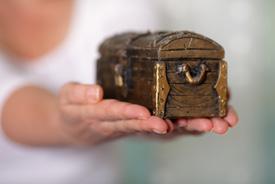

"We only hear what we want to hear. We only see what we want to see."
This statement about human nature, pessimistic though it may be, rings true to most of us. It helps explain all sorts of strange human behaviors, ranging from the question of why some of us have difficulties in communication to why the Jews of Eastern Europe failed to see the Holocaust looming on the horizon.
We are all familiar with the experience of listening to a speaker and discovering that we heard a very different message than did our companion, who was sitting right beside us in the audience.
We hear and see what we want to, and fail to hear and see the proverbial "writing on the wall", perhaps because it is so unpleasant to us that it simply does not register.
It was long ago, while still in college, that I learned that this observation about human nature has ancient roots in the history of philosophy. Of course, philosophers do not generally express themselves in terms that are easily understood. The great 18th-century philosopher Immanuel Kant
used the term "transcendental idealism" to refer to his contention that "the human mind creates the structure of human experience". For him, there is no such thing as a universal perception of the world around us. We each see the world differently, according to our own subjective interests, biases, and prejudices.
In simpler terms, we placed our own "constructs" upon everything that we see or hear, so that you may hear one message and I may hear an entirely different one. We may both be standing before the same picture, but you may see it one way, while an entirely different picture appears before me.
Nearly 200 years after Immanuel Kant wrote his treatise on this subject, a psychologist named George Kelly, considered by many to have been the father of modern clinical, cognitive psychology, used Kant's notion to formulate an approach to psychotherapy. He argued that we experience the world through the lens of our "constructs", which we used to interpret or construe new events. He insisted that each person's system of constructs is unique, and that by understanding an individual's system of constructs a therapist can help patients modify their constructs to enable them to better cope with their behavioral problems.
Many others have subsequently followed in the footsteps of Kant and Kelly. One of my favorites was a social psychologist


named Gustav Ichheiser. A native Austrian, but had to flee when the Nazis invaded that country. He spent much of his life in exile, but wrote on the subject of social misunderstandings. He felt that we can better understand social and political conflict if we understand the degree to which we misperceive each other. He famously wrote, "what seems to be often constitutes a more solid psychological reality than what actually is."
I have a special interest in Ichheiser's otherwise obscure writings because of his insights into the nature of anti-Semitism. He provides an astute analysis of anti-Semitic behavior, based upon his numerous first-hand experiences with anti-Semites who "saw" clean Jews as "dirty", poverty-stricken Jews as wealthy, and helpless Jews as all-powerful.
The observations that I have just summarized help us understand the behavior of Balaam, the “anti-hero” of this week's Torah portion, Balak (Numbers 22:2-25:9).
He defied the Lord. This, despite his prophetic talents which, we are told, rivaled those of Moses himself, and despite his having heard the Lord's clear message not even to accompany those who would have him curse the Israelites, much less to actually curse them.
In the opening chapter of our Parsha we read of the mission upon which the elders of Moab and Midian set out. They bore the message of their king, Balak: "Put a curse on this people for me… Perhaps I can thus defeat them and drive them out of the land, for I know… that he whom you curse is cursed."
Balaam does not immediately comply.
Exptected occupancy: Dec. 31st 2023
• For sale, 2 garden apartments sold together.

• Apartment sizes: ~67.7 + ~42.2 sqm


• Ground floor
• Big garden ( ~76+ ~22 sqm)
• Private storage unit and parking for each apartment

• The sizes of the storage units: ~7.7 + ~12.4 sqm
• Under the apartment there is a void of 70 sqm attached to this apartment (potential to add to apartment with a permit)
He tells them that he must first consult the Lord and then "I shall reply to you as the Lord may instruct me." But the Almighty clearly and forcefully tells Balaam: "Do not go with them. You must not curse that people, for they are blessed."

To condense the biblical narrative, we soon discover that Balaam persists in his willingness to accompany the messengers, and makes a wholehearted attempt to curse the Israelites. So persistent is he that the Lord begrudgingly grants him a vague permit to "go with them, but whatever I command you, that you shall do."


Commentators throughout the ages have been puzzled by Balaam's willful defiance of the Lord's initial instructions. Balaam, by his own testimony, knows the Almighty's mind. He receives a clear and unambiguous prophecy. Yet he fails to obey. How are we to understand this?
I propose that we apply the sentence with which I began this essay. "We only hear what we want to hear. We only see what we want to see." Balaam heard the Lord's command to desist from accompanying the messengers and to avoid cursing the Israelites. But he didn't "hear" that command because he did not "want to hear it". He "heard" it differently from the way we will hear it this Sabbath from the Torah reader in our local synagogue.
We hear a clear "Balaam, don't you dare!" But he heard a mild refusal, full of loopholes, subject to modification, and perhaps even capable of being withdrawn.
Using the terminology of Kant and Kelly, Balaam placed his own "construct" upon the words issued by the Divine. He heard those words filtered through the unique
“constructs” which he developed in the course of his life. Those constructs distorted the message so that he did not "hear" it as definite and unambiguous, but as subject to negotiation and interpretation.
What were Balaam's "constructs"? What aspects of his personality and character influenced his perception so that he could distort and attempt to disobey the Almighty's clear command?
I propose that an answer to this question can be found in a remarkable passage in Pirkei Avos, "Ethics of the Fathers" Chapter 5, Paragraph 22. It reads, "A generous eye, a modest demeanor and a humble soul are the traits of our father Abraham. An evil eye, an arrogant demeanor, and an insatiable soul are attributes of the disciples of the wicked Balaam."
If our "constructs" resemble Abraham's generosity, modesty, and humility then our perceptions will be unobscured. We will see and hear accurately. We will not distort the sensory impressions which we encounter in life. We will not "see and hear what we want to see and hear", but we will see what is real and hear what is spoken.
If, on the other hand, our "constructs" are based upon jealousy, arrogance, and insatiable material desires, those "constructs" will distort what we "hear and see", so that they will not interfere with our self-interests. Our "evil eye" will distort what we "see", and our "arrogant demeanor and insatiable soul" will assure that we "hear what we want to hear."

There is a lesson here for all of us, and it is an important one. Our inner selves determine how we perceive and how we react to our outer reality. We must model ourselves
after Abraham, so that generosity, modesty, and humility become the core of our inner selves, enabling us to "see and hear" clearly and correctly.
We must suppress our Balaam-like envy, arrogance, and insatiable desires, so that we no longer "hear and see what we want to hear and see" but clearly hear and see the full breadth, depth, and beauty of our wondrous world.
Walking down King George St. in Jerusalem and want a cold bottle of water?
Come help yourself to a bottle at 52 King George.
In loving memory of Yoni’s wife
Tziporah a"h, a true Eishes Chayil, always full of chessed, kindness and laughter, and brought life and strength to so many people, that she touched! She was like Aron, who loved peace and pursued peace. Yoni thanks Hashem for having the opportunity of having Tziporah in his life, to learn of her caring, patience and happiness, to overcome her challenges. May Tziporah's Neshama be a light onto the world, in a time of darkness, and may her Neshama shine to Gan Eden. Yoni misses Tziporah with tears in his eyes, as Hashem gave him a gift, a crown jewel, now he returns her to Hashem. With thanks and Toda. Love, Yoni
To help refill the supplysend tax deductible donations for Be’er Tziporah a"h Bottled Water Gemach to Chabad of RechaviaRabbi Yisroel Goldberg email
Rabbi@JerusalemChabad.org
02 800-1717
www.JerusalermChabad.org/DonateShekels
In this week’s Parsha, it says: “How lovely are your tents, O Jacob, your encampments, O Israel! Like palm groves that stretch afar, like gardens beside a river, like aloes that the LORD has planted, like cedar trees beside the waters. Water shall flow from hi s buckets, and his seed shall be in many waters.”
The largest collection of exclusive Jerusalem properties is just one search away www.remaxjerusalem.com
Approx. 85 Sqm, 3 bedrooms including a large Master on-suite. Great location. Advanced planning stages of "Pinui Binui"
NIS 3,290,000










Rachel Gluck 052-478-9193
Prestigious apartment in Mandate building
High ceilings, architecturally designed 112 sqm. 2 bedrooms (both ensuite), 3 balconies, 1st floor. NIS 7,300,000
Alyssa Friedland 054-668-4111
Henry
5 bedrooms, 125 sqm, on 2 levels. 90 sqm garden and Sukkah balcony with view, parking, storage NIS 4,190,000
Ruthy Elinson 058-697-2166
Located in central area. Beautiful 80 sqm garden. Spacious 125 sqm apartment, 5 bedrooms. NIS 4,900,000




Ruthy Elinson 058-697-2166
Beautiful 78 sqm apartment. High ceilings. Master + 3 small bedrooms (half rooms), 9 sqm balcony, 2 parking spots, storage. NIS 3,700,000
David Weiser 055-276-2960

High-end corner house for rent. 240 sqm, 7 rooms, 3 full bathrooms, sukkah courtyard, 2 balconies. Near shuk and city center. Min 2-year lease. NIS 15,900
Orna Even - 054-621-6069
Quiet & pastoral, spacious 70 sqm apt, one floor up, 3 rooms, only apt on floor, 10 sqm storage with window. Beautiful communal gardens, registered parking. NIS 3,590,000


Orna Even - 054-621-6069


Ha-Dishon
4 and a half room apartment, 2 bathrooms,109 sqm Sukkah balcony, central a/c, elevator, parking. NIS 4,100,000

Gadi Lissak 050-212-7748
Spacious apartment 3 bedrooms, 81 sqm, elevator, parking, storage, 6th floor, elevator, easy accessibility


NIS 3,100,000
Judy Blumenfrucht 054-431-8814
There is an old saying that what makes God laugh is seeing our plans for the future1. However, if Tanach is our guide, what makes God laugh is human delusions of grandeur. From the vantage point of heaven, the ultimate absurdity is when humans start thinking of themselves as godlike.

There are several pointed examples in the Torah. One whose full import has only recently become clear occurs in the story of the Tower of Babel. Men gather together in the plain of Shinar and decide to build a city and a tower “that will reach to heaven” (Gen. 11:4). As it happens, we have archaeological confirmation of this fact. Several Mesopotamian ziggurats, including the temple of Marduk in Babylon, have been found with inscriptions saying that they reach heaven.2
1. The John Lennon version is: “Life is what happens while you are making other plans.”
2. The Tower of Babel is referred to in the
The idea was that tall buildings – manmade mountains – allowed humans to climb to the dwelling place of the gods and thus communicate with them. The Mesopotamian city states were among the first places of civilisation, itself one of the turning points in the history of human life on earth. Before the birth of agriculture, the ancients lived in fear of nature: of predators, of other tribes and bands, and of the vicissitudes of heat and cold, drought and flood. Their fate depended on matters beyond their control.
Only with the spread of domesticated animals and agriculture did people gather in towns, then cities, then empires. A tipping point occurred in the balance of power between nature and culture. For the first time humans were not confined to adapting to their environment. They could adapt their environment to suit them. At this point they – especially the rulers – began to see themselves as gods, demigods, or people with the power to influence the gods.
The most conspicuous symbol of this was buildings on a monumental scale: the
Enuma Elish as “Esagila,” which means “the house of the lifting up of the head.” Nabopolassar and Nebuchadnezzar both repaired this building, inscriptions to which say that they “raised high the head” of the tower “to rival the heavens.” Nahum Sarna, Understanding Genesis (New York: Schocken Books, 1970), p. 73.
ziggurats of Babylon and other Mesopotamian cities, and the pyramids of Egypt. Built on the flat land of the Tigris-Euphrates valley and the Nile delta, they towered over their surroundings. The great pyramid of Giza, built even before the birth of Abraham, was so monumental that it remained the tallest man-made structure on earth for four thousand years.
The fact that these were artificial mountains built by human hands suggested to their builders that humans had acquired godlike powers. They had constructed a stairway to heaven. Hence the significance of the phrase in the Torah’s account of the tower, “And the Lord came down to see the city and the tower, which the children of man had built” (Gen. 11:5). This is God laughing. On earth, humans thought they had reached the sky, but to God the building was so infinitesimal, so microscopic that he had to come down even to see it. Only with the invention of flight do we now know how small the tallest building looks when you are looking down from a mere 30,000 feet.
To end their hubris God simply said, let us “confuse their language” (Gen. 11:7). They no longer understood one another. The entire project was turned into French farce. We can visualise the scene. A foreman calls for a brick and is handed a hammer. He tells a worker to go right and he turns left. The project foundered in a welter of incomprehension. Men thought they could climb to heaven but in the end they could not even understand what the person next to them was saying. The unfinished tower became a symbol of the inevitable failure of vaunting ambition. The builders achieved what they sought but not
Jerusalem Real Estate is My Business
Eta: 054-723-3863
Amazing stand alone homes in OLD KATAMON, TALBIYA, BAKA, GERMAN COLONY

OLD KATAMON 80 sqm with 2 bedrooms and 2 baths, one flight up with elevator. Completely renovated with terrace that opens into a sukka. Full of light & surrounded by greenery. Very quiet Price 4,200,000 NIS
Fantastic opportunity to buy 170 sqm on one floor, with sukka terrace, Shabbat elevator, brand new apt ready in 2 years. Only 6,500,000 NIS.

OLD KATAMON, Moshava
Bldg. 74 sqm, two beds, 2 full baths and 2 terraces (one sukka). 3rd floor great views. Available immediately. 2 elevators, underground parking. 24/7 doorman & activity room. Price 3,650,000 NIS
In BAKA, most sought out location. New apartment duplex of 236 sqm plus 81 sqm of outdoor space. Plus parking. For more info call Eta: 0547233863
ARNONA. Fantastic garden apartment for sale on Lupo Street. 175 sqm 6 rooms 4 bedrooms and 3.5 baths. Extra office downstairs. 60 sqm garden. Storage room. Parking. 8,900,000 NIS
MEKOR HAIM 100 sqm with 3 bedrooms and 2 full bathrooms, registered parking and sukka terrace. Shabbat elevator



Price 4,000,000 NIS
Eta Morris Realty, Ltd.

etamorrisrealestate@gmail.com
Eta: 054-723-3863
etamorrisrealty.co.il

in the way they intended. They wanted to “make a name for themselves” (Gen. 11:4) and they succeeded, but instead of becoming a byword for man’s ability to reach the sky, Babel became babble, an emblem of confusion. Hubris became nemesis.
The second example was Egypt during the early plagues. Moses and Aaron turned the water of the Nile into blood and filled Egypt with frogs. We then read that the Egyptian magicians did likewise to show that they had the same power. So concerned were they to show that they could do what the Hebrews could do, that they entirely failed to realise that they were making things worse, not better. The real skill would have been to turn blood back into water, and make frogs not appear but disappear.
We hear the Divine laughter especially
077-2050015
052-2678749
golanechasim@gmail.com
Meir Golan
in the third plague: lice. For the first time, the magicians tried and failed to replicate the effect. Defeated, they turned to Pharaoh and said, “This is the finger of God.” The humour comes when we remember that for the Egyptians the symbol of power was monumental architecture: pyramids, temples, palaces and statues on a massive scale. God showed them His power by way of the tiniest of insects, painful yet almost invisible to the eye. Again hubris became nemesis. When people think they are big, God shows them they are small – and vice versa. It is those who think themselves small – supremely so Moses, the humblest of men – who are truly great.
Meir Golan

Old Katamon: 4-room apartment in a small and quiet street, 101 sqm, renovated, very bright and airy, master bedroom, Safe room (mamad), sukkah balcony, view, elevator, 3,400,000 NIS
Old Katamon: 4-room apartment, 90 sqm, well split, bright, airy, sukkah balcony facing a magnificent panoramic view, 3 exp Shabbat elevator, parking, 3,290,000 NIS
RASCO: new 4 room apartment, 95m, master suite, elevator, balcony, very nice view 2,950,000 NIS
BAKA: 4 room apartment, 85m, elevator, neat and nice apartment 2,850,000 NIS
ARNONA: 4-room apartment, 90m, beautifully renovated, master suite, balcony, storage, Shabbat elevator, private parking 3,250,000 NIS
ARNONA: 4-room apartment, 90m, master suite, balcony, storage, Shabbat elevator, private parking
Old Katamon: Spacious 3-room apartment in a very quiet street, 75 sqm, sukkah balcony facing a green and pastoral view, 3 exp. Shabbat elevator, private parking storeroom, 2,690,000 NIS
3,250,000 NIS
BAKA: New 4 room apartment in a new building, 88m, master suite, storage, Shabbat elevator, private parking, 3,950,000 NIS
BAKA: New 4 room apartment in a new building, 88m, master suite, storage, Shabbat elevator, private parking, 3,950,000 NIS

RECHAVIA: 4-room apartment, 92m, Suka balcony, Shabbat elevator, fully accessible, private parking, storage 4,400,000 NIS
RECHAVIA: 4-room apartment, 92m, Suka balcony, Shabbat elevator, fully accessible, private parking, storage 4,400,000 NIS
This explains the otherwise curious episode of Bilam’s talking donkey. This is not a fanciful tale, nor simply a miracle. It arose because of the way the people of Moab and Midian thought of Bilam – and perhaps, by extension, the way he thought of himself. Balak the Moabite king, together with the leaders of the Midianites, sent a delegation to Bilam asking him to curse the Israelites: “Come now, curse this people for me, since they are too mighty for me … for I know that whom you bless is blessed, and whom you curse is cursed” (Num. 22:6).
ARNONA: 5-room apartment, 108m, balcony, nice view, Shabbat elevator, fully accessible, private parking, storage 4,000,000 NIS
ARNONA: 5-room apartment, 120m, balcony, elevator, fully accessible, private parking, storage 4,350,000 NIS
ARNONA: 5-room apartment, 124m, balcony, Shabbat elevator, fully accessible, private parking, storage
BAKA: 5-room garden apartment, 140m, master suite private parking, storage, full of light, nice garden, 6,000,000 NIS
4,450,000 NIS
OLD KATAMON: Spacious new 5-room apartment, 140m, terrace, underfloor heating, Shabbat elevator, 2 parking, 6,300,000 NIS
OLD KATAMON: 5-room apartment, 127m, master suite, balcony, private parking, storage, full of light, 5,500,000 NIS
FOR RENT:BAKA: nice 4-room apartment, 82m, beautifully renovated, master suite, air conditioners, balcony, second floor, elevator - fully accessible, storage, 8,000 NIS
OLD KATAMON: Spacious new 5-room apartment, 140m, terrace, underfloor heating, Shabat elevator, 2 parking, 6,300,000NIS
This is a pagan understanding of the holy man: the shaman, the magus, the wonder-worker, the person with access to supernatural powers. The Torah’s view is precisely the opposite. It is God who blesses and curses, not human beings. “I will bless those who bless you and those who curse you I will curse,” God said to Abraham (Gen. 12:3). “They shall place My name on the children of Israel and I will bless them,” He said about the priests (Num. 6:27). The
idea that you can hire a holy man to curse someone essentially presupposes that God can be bribed.

The narrative is admittedly obscure. God tells Bilam not to go. Balak sends a second delegation with a more tempting offer. This time God tells Bilam to go with them but say only what He instructs him to say. The next morning Bilam sets out to go with the Moabites, but the text now states that God was “angry” with him for going (Num. 22:22). That is when the episode of the donkey takes place.
The donkey sees an angel barring the way. It turns aside towards a field but Bilam hits it and forces it back to the path. The angel is still barring the way and the donkey veers into a wall, crushing Bilam’s foot. Bilam hits it again, but finally it lies down and refuses to move. That is when the donkey begins to speak. Bilam then looks up and sees the angel, who had been hitherto invisible to him.
Why did God first tell Bilam not to go, then that he should go, and then become angry when he went? Evidently God could read his mind and knew that Bilam did really want to curse the Israelites. We know this because later, after the attempt to curse the Israelites failed, Bilam succeeded in causing them harm, advising the Midianites to get their women to seduce the Israelite men, thus provoking the anger of God (Num. 31:16). Bilam was no friend of the Israelites.
But the story of the talking donkey is another instance of Divine laughter. Here was a man reputed to be a maestro of supernatural forces. People thought he had the power to bless or curse whomever he chose. God, the Torah tells us, is not like


that at all. He had two messages, one for the Moabites and Midianites, another for Bilam himself.
He showed the Moabites and Midianites that Israel is not cursed but blessed. The more you attempt to curse them the more they will be blessed and you yourself will be cursed. That is as true today as it was then. There are movements throughout the world to curse the state and people of
Israel. The greater the malice of Israel’s enemies, the stronger Israel becomes, and the more disasters its enemies bring upon their own people.

God had a different message for Bilam himself, and it was very blunt. If you think you can control God, then, says God, I will show you that I can turn a donkey into a prophet and a prophet into a donkey. Your animal will see angels to which you yourself are blind. Bilam was forced to admit:
How can I curse those whom God has not cursed? How can I denounce those whom the Lord has not denounced? (Num. 23:8)
Hubris always eventually becomes a nemesis. In a world in which rulers engaged in endless projects of self-aggrandisement, Israel alone produced a literature in which they attributed their successes to God and their failures to themselves. Far from making them weak, this made them extraordinarily strong.
So it is with us as individuals. I had a beloved friend, no longer alive, about whom it was said that “he took God so seriously that he didn’t need to take himself seriously at all.” Pagan prophets like Bilam had not yet learned the lesson we must all one day learn: that what matters is not that God does what we want, but that we do what He wants. God laughs at those who think they have godlike powers. The opposite is true. The smaller we see ourselves, the greater we become.
These weekly teachings from Rabbi Sacks zt”l are part of his ‘Covenant & Conversation’ series on the weekly Torah teaching. With thanks to the Schimmel Family for their generous sponsorship, dedicated in loving memory of Harry (Chaim) Schimmel. Visit www.RabbiSacks.org for more.

Desperately seeking loving home for 2 adorable cats (brothers)
6 yrs old • shots • fixed • INDOOR • clean So loving! You will adore them! Call 053.315.4045 for pictures



Old Katamon Penthouse, 3rd floor, 4.5R, 180 SQM, parking, storage, in need of renovations.




#052-6503348
Baka 3.5R, 78 SQM, 1st floor, parking, great condition! Building in process of “pinui binui.” #052-6503348
Arnona New! Ranging 90-115 SQM w/elevator, parking & Sukkah balcony. Tailored plans available.






#050-7225694







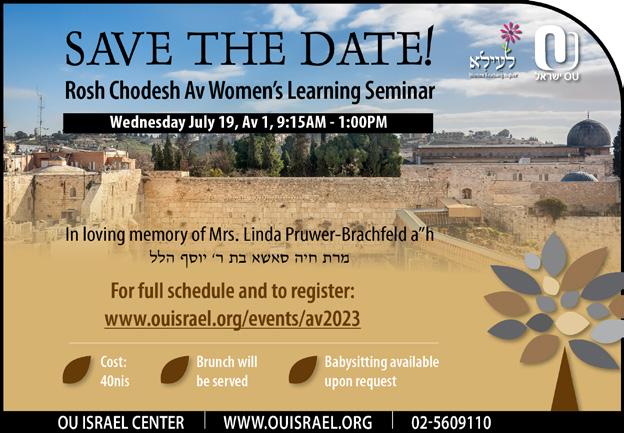
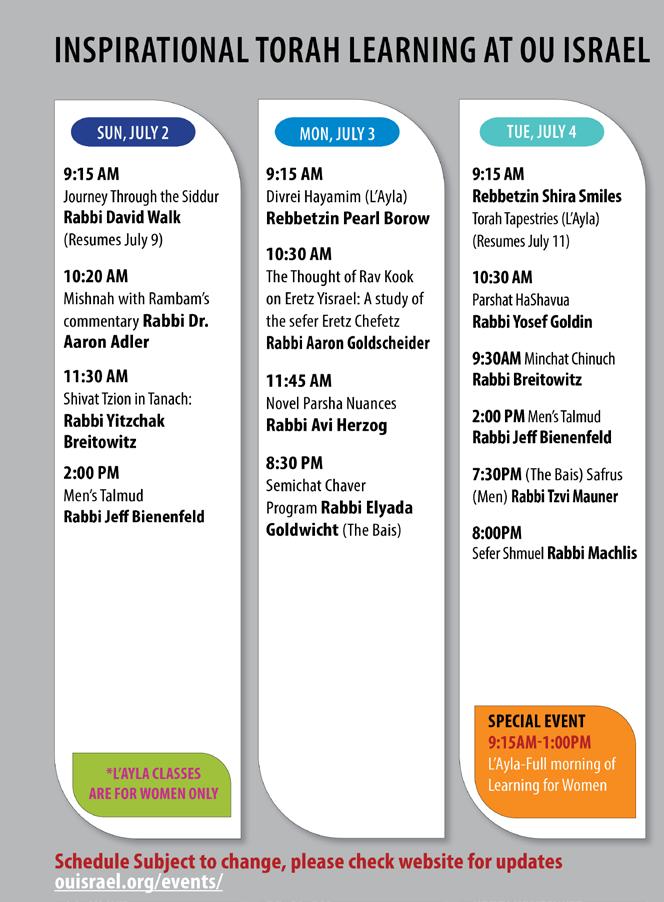






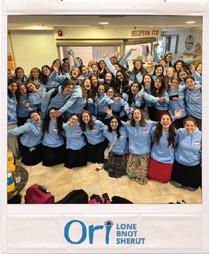



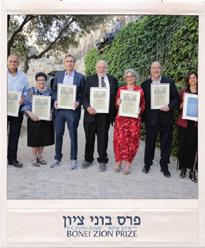






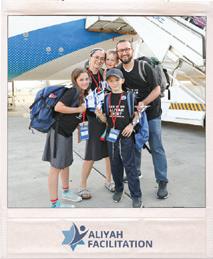


Sefer Michah, the sixth book in Trei Asar (a collection of the prophecies from the twelve “minor” prophets) is the source from which this week’s haftarah is taken. The book consists of seven prakim that focus, primarily, on the navi’s condemnation of Israel both for her lack of faithful adherence to Hashem and for her unethical behavior one to another. Michah HaMorashti, as the text refers to him, was a younger contemporary of Amos, Hoshe’a and Yishayahu, and he censured both Israelite states: the Northern Kingdom of Shomron and the Southern Kingdom of Yehudah.
One who studies through the text would find the opening chapters filled with the prophet’s warning of the approaching divine punishment, in which he describes Hashem’s impending devastation of Shomron, due to her corrupt behavior and the eventual destruction of Yerushalayim, who followed in the same ways. This same dark theme continues as Michah’s berates the nation’s leaders for their corruption of justice, their avarice and their thievery and goes on to condemn the false prophets whose fabricated prophecies led the nation to ignore the warnings of G-d’s prophets and to continue on their sinful ways.
In the middle of all of these depressing messages we hear the words of hope echoing in our ears: “V’hayah sh’erit Ya’akov…”,
the opening words of our haftarah carries the promise that Israel will be a blessing to all of the nations who, like welcome rain, depends on no person – but on Hashem alone. These surprising visions of hopefulness and faith in the midst of the navi’s prophecies of doom, seem to have no place here at all. Promises of victory over the enemy and a final destruction of Israel’s tormentors should have formed a separate section of the navi’s words. In fact, were we to read the p’sukim that follow the closing of our haftarah selection, we would be quite surprised at Michah”s disapproval –indeed, severe criticism – of Israel’s behavior. The vision of hope and promise seems to be all but forgotten in the continued condemnation that the prophet rains down upon the nation, condemnation that goes on into the very final perek - and even includes the navi’s lament over the coming destruction.
And yet, the optimistic promises that unexpectedly interrupt the prophet’s censure actually color the entire tone of Michah’s message and helps us better understand what the prophet’s overall censure is meant to accomplish. Although
Torah we somewords. when every as Mount of entire this things connecessence us the because essence. Sinai physical mitzvot matters. that voice, afterlife. I canFor no foland comreal amazing teachreceived us
students see Hashem, even though he is hidden by the mask of nature and teaches us how to use our free will to bring Hashem into the physical world in whatever way we choose.
The OU’s Jewish Learning Initiative on Campus (JLIC) is creating and nurturing vibrant religious communities in Israel to support English-speaking college students and young professionals.
we tend to focus upon the closing words of our haftarah, those that express the simple demands of Hashem, (“to do justice, love kindness and walk ‘humbly’ with your G-d”), the prophet’s purpose is to bring Israel back to Hashem, and the condemnations that fill Michah’s painful address is best understood in the earlier verses of the haftarah. It is there that the navi challenges the people with a simple question:
JLIC Israel’s goals include: building a warm and welcoming Jewish community for students and young professionals; providing engaging and dynamic Jewish education; providing a supportive home environment for Olim; providing resources for personal and religious growth, including personal mentoring, Aliyah support, religious guidance and leadership development. Current JLIC programs in Israel include: Reichman University - Herzliya; Bar Ilan University
Efrat and Gush Etzion
www.angelrealty.co.il
For Sale in Efrat
Zayit: * 300 meter cottage, 10 rooms, located bottom of Pitum
Haketoret St. 4,990,000 NIS
* 5 room apt. 130m, 2,690,000 NIS
*The Village – 8 room cottage, 4,700,000 NIS
Dagan: * 5 room apt. 140m, 2,750,000 NIS
Rimon: * Stunning semi attached home. On a plot of 430m! 7.5 rooms, fully renovated. 4.7 Million
For Sale in Alon Shvut :
* 5 room apt. 150m, 2,300,000 NIS
* 200m duplex, 7 room s. 2.65 Million
- Givat Shmuel; Tel Aviv University; Tel Aviv for Young Professionals; and Jerusalem. Contact: Rabbi Jonathan Shulman, Director of OU-JLIC in Israel shulmanj@ou.org
“My nation” cries G-d, “what wrong did I do to you – how did I tire you? Answer me!” Hashem’s “emotional” outburst placed in the mouth of Michah, challenged the people to look back at their faithlessness in light of the kindnesses and compassionate acts He performed for them. (Indeed, it is in these few verses that the navi makes mention of the events in this parasha and Hashem’s reversal of Bil’am’s curses). The prophet’s depiction of the sins of Israel were made precisely to allow the nation to objectively see how poorly they behaved in light of the kindly way G-d dealt with them.
For Sale: Ben Maimon, 4 rooms, 113m, 2 bathrooms, porch, 1st floor, elevator, 6.2 million NIS
It is THIS message that Michah hoped would serve as a “wake-up call” to the corrupt nation. Let them know that they still had time to return to He Who has endless compassion.
Gabi- 0524588716
Lecture from 36 years of hands-on reporting by David Bedein - at the OU Israel Center, 22 Keren HaYesod
Tuesday, July 4, 7:30pm
How Israel can declare independence from the US and remain friends
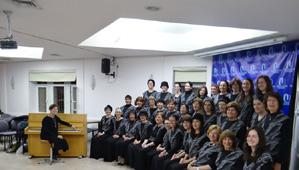
Director Hadassah Jacob 052-384-7230
That is always the lesson…for us as well.
Smadar 050-3114040 // 02-642-4329 smadi_bida@walla.co.il
Monday mornings 10.30-12.30
For more details, call Ruth 02-628-7359 or Judy 054-569-0410
Monday Evenings 7:00 - 9:00pm
Sundays 12:45-1:30pm at the OU Israel Center
Sura Faecher 0504153239

Balak said to him (Bilam), "Come with me to another place from where you will see them; however, you will see only a part of them, not all of them and curse them for me from there. He took him to the field of the lookouts, to the peak of the mountain, and he built seven altars and offered up a bull and a ram on [each] altar. (Bamidbar 23:13-14)
Balak asks Bilam to curse Am Yisrael and then builds seven altars upon which to sacrifice to God so that Bilam's curse will take effect. At first glance, one may speculate that Balak's sacrifices are insincere and therefore not viewed favorably and are totally ineffective. Yet, as Rav Schwab points out in his sefer Maayan Beit Hashoava, in the Talmud (Sota 47a) we are taught:
Rav Yehuda in the name of Rav says: A person should always engage in Torah study and in performance of mitzvot, even if he does so not for their own sake, as through such acts performed not for their own sake, one will come to perform them for their own sake. He proves the value of a mitzva done not for its own sake: As in reward for the forty-two offerings that Balak, king of Moab, brought, he merited that Ruth descended from him, from whom King Solomon descended, about whom it is written that he brought many offerings: “A thousand burnt-offerings did Solomon offer up” (I Kings 3:4).
The gemara extrapolates a well-known principle from Balak's actions. One should fulfill a mitzva shelo lishma – "shemetoch shelo lishma ba lishma ." This is derived from the fact that although Balak offered sacrifices without the proper intent, he was rewarded with descendants that included Ruth and Shlomo Hamelech – the latter of which offered many sacrifices.
The performance of a mitzva has unbelievable consequences, even without the proper intent. We find this elsewhere where a small mitzva can have a tremendous impact. We are told that Moshe feared fighting Og, because he informed Avraham that Lot was taken captive. Although Og's intention was that Avraham






will be killed at war and Og could then marry Sarah, Moshe still feared that Og may have had zechuyot from helping save Lot's life, that could lead Og to be victorious over Moshe and Klal Yisrael.

Similarly, Chazal tell us that Yaakov feared his confrontation with Esav, because Esav may have had zechuyot from his fulfillment of the mitzva of Kibud av v'em and Yishuv ha'aretz- two mitzvot that Yaakov was unable to fulfill while he was in the house of Lavan.

We learn from Balak's offering of sacrifices, the power of a mitzva. If he merited Shlomo Hamelech as a descendant for his insincere offerings, consider what one


Come to learn the art of healing and relieving pain with cupping and micro bloodletting. For English/Hebrew speakers.
Come to learn the art of healing and relieving pain with cupping and micro bloodletting. For English/Hebrew speakers.


Theory – safety and demonstration by Ilan Horowitz, graduate of the New England School of Acupuncture – Boston (1983).
Theory – safety and demonstration by Ilan Horowitz, graduate of the New England School of Acupuncture – Boston (1983).
Practice with Milka Horowitz and female assistant.
Practice with Milka Horowitz and female assistant.
Date: July 25, 2023 (7 Av 5783). Time: 9:00 AM – 2:00 PM.
Date: July 25, 2023 (7 Av 5783). Time: 9:00 AM – 2:00 PM.
Place: Bayit Vagan, Jerusalem.
Place: Bayit Vagan, Jerusalem.
Cost: NIS 750.
Cost: NIS 750.
For more information and registration, please call 04-6600390.
For more information and registration, please call 04-6600390.
“Lo hibeet aven be’Yaakov ve’lo ra’ah amal beYisrael – [Hashem] does not look at wrongdoing in Yaakov and He sees no iniquity in Israel,” (Bamidbar 23;21) This sweeping praise from Bilam is powerful enough to be mentioned in the Malchiyot section of Mussaf on Rosh Hashanah. How, though, are we to understand this idea? Sin is unfortunately a reality for us, there is no denying it.
Rav Zaidel Epstein in Sefer He’arot explains that even if a Jew commits a sin, it does not become part of his essence. Shlomo Hamelech tells us so sweetly in his Song of Songs, “Kulach yafa ra’ayati, u’mum ein bach – You are all beautiful my beloved and there is no blemish in you.” (Shir Hashirim 4;7) This is how we must view ourselves, intrinsically pure and holy. We can never fall into despair that we are mired in sin with no recourse to ever improve.
The Slonimer Rebbe in Netivot Shalom elaborates on this theme. Hoshea Hanavi enjoins us, “Shuva Yisrael ad Hashem Elokecha ki kashalta be’avonecha - Return, Israel, to Hashem your God, for you have stumbled in your iniquity.” (Hoshea 13;2) The word “avon”, iniquity, is a term used for purposeful sin. How can one willfully sin?
The Rebbe explains that every time a Jew sins, even if it is deliberate, it is considered philosophically an “accidental stumbling.” One only sins when overcome by a spirit of foolishness, as Chazal teach us. Clearly, if one would know the impact of violating the Will of Hashem, one would never “sell their birthright for a pot of lentils.” We can liken this to the wonder exhibited by a simple villager who sees a chandelier for the first time and is taken by the rope that holds it in place. When he cuts the rope and the chandelier comes crashing down, he is dismayed since he obviously had no intention of causing damage and darkness, he just wanted the rope. Similarly, Hashem looks at our sins understanding our foolishness and does not hold us responsible for the immense implications of our actions.
Rav Wolbe quotes an amazing Midrash articulating that the brachot of BiIam were greater than the brachot of Yaakov Avinu. The latter critiqued the people, while Bilam just praised them. The difference, teaches Rav Wolbe, is in perspective. Yaakov Avinu was speaking as a leader of the people, always aware that there is room for improvement. In contrast, Bilam’s perspective focuses on the connection between Hashem and His people. Hashem will always be with us, regardless of our flaws
Rabbi Avrohom Drizin, known as ‘Avrohom Mayorer’ (named after his Russian hometown), was a dedicated chasid of all three Lubavitcher Rebbes in the 20th Century. A one-man chesed institution, in Russia he was the Rosh Yeshivah of Lubavitcher Yeshivah of Nevel, in Israel he helped build Kfar Chabad, and in Crown Heights he was appointed as a shadar ( shlucha d’rabbanan ) by the Frierdiker Rebbe, Reb Yosef Yitzchok. He was a master of mesirus nefesh and respected by all as a great oveid and a powerful mashpiah or spiritual guide.
Reb Avrohom would often travel alone through the United States teaching Torah, recruiting talmidim and fundraising for Yeshivah Tomchei Temimim. Once, when was in his late 70’s, he visited a Jewish community in Houston, Texas to be mezakeh, to strengthen the Jews, and provide them an opportunity to support the Yeshivah.
After davening Maariv in a shul there, when everyone else had left for home, Reb Avrohom asked the gabbai if he could remain in the shul. The shul’s manager had no problem trusting the elderly, ehrlicheh
Chasidic visitor: “Of course, be our guest! Just please lock up on your way out.”

When the gabbai arrived early next morning to set up for Shacharis, he was shocked to find Reb Avrohom sitting in the exact place he left him the night before. “Rabbi! Did you go home? Did you sleep here on a bench?” “No, I didn’t,” Reb Avrohom admitted. “So, pardon for me asking, but what were you doing?” “Well,” he smiled shyly, “I was farbrenging !” Puzzled, the gabbai looked around at the empty, silent sanctuary. “What? Farbrenging with whom?”
“Myself! It’s Yud Beis Tamuz, the day my Rebbe was freed from prison. Therefore myself and my friends — the Rebbe’s other students and emissaries — also gained a new lease on life on this day.”
With incredible mesirus nefesh , sacrifice and fearlessness, Rebbe Yosef Yitzchak Schneersohn, the Frierdiker, or ‘Previous’, Lubavitcher Rebbe, dedicated his life to battling the oppressive Bolshevist policies of the former Soviet Union. Fighting the atheist Marxist-Leninist doctrine, the Frierdiker Rebbe made every effort to encourage Torah observance. He created and led a clandestine network of schools, a life-line of Yiddishkeit throughout the land. He funded shechita and mikva'os, and kept orthodox Judaism alive in Russia. Over the decades of his
leadership, he was arrested and imprisoned numerous times for “counter-revolutionary” activities, and in 1927, he was sentenced to death. Following a massive international campaign and political pressure, his sentence was commuted to prison and banishment.
Yud Beis Tamuz marks the Frierdiker Rebbe’s salvation and ultimate release from the evil gezeira. For the next quarter century in Latvia, and later in the United States, he continued to lead with intensity and focus, spurring the growth and reach of the Chabad-Lubavitch movement.
Reb Yechezkel ‘Chatche’ Feigin was a leader of the Chabad underground in the USSR, and the Frierdiker Rebbe’s right hand man and trusted mazkir (secretary). Reb Chatche’s position as mazkir took up most of his day, leaving little time for his personal devotions and Torah learning. A dedicated oveid accustomed to having time and headspace for lengthy davening with deep kavanah , he asked that the Rebbe allow him more time for his own ruchniyus, spiritual needs.
“Chatche… In Gluboke, near Vitebsk,” the Rebbe responded, “there is need for a new yeshivah.”
Reb Chatche understood that the Rebbe was not mevateir, did not permit. Like most of the heroes of that era, Reb Chatche was known as a resilient, strong person. But here, uncharacteristically, he began to cry. The Rebbe began to cry along with him, “Oy, Chatchkeh! I understand you… it is the same for me! But what should we do? Sit by with folded arms?”
Reb Chatche shouldered his obligation and continued his shlichus faithfully until his murder al kidush Hashem by the Germans.
Haunted by the painful memories and horrific suffering he had endured, broken in body and spirit, a holocaust survivor arrived at 770 Eastern Parkway to seek consolation and blessing from the Frierdiker Rebbe. The Yid was consumed by survivors' guilt. He had lost his wife and children, and was the lone survivor of a large extended family and community. “Why did I survive while the others did not?” he asked the Frierdiker Rebbe, pointedly. What merit do I have over my friends and mishpacha? What zechus, what merit do I have to be alive?"
Zechus? Chov! “Merit? Obligation!” The Frierdiker Rebbe’s clear and emphatic response turned the Jew’s life around with just two words.
May we “gain a new lease on life” this Yud Beis Tamuz. May we draw inspiration from the heroism and sacrifice of the Previous Rebbe, and recommit ourselves to Yiddishkeit and the wellbeing of others.
Do you have a life insurance policy you:
• No longer want?
• No longer need?
• Can no longer afford the premium?
• Could you use extra money instead of keeping your policy?
I can guarantee that if you qualify with the underwriting process I can get you more money than if you cash it in with the company.
Please contact Moshe Russell at: Buymypolicy32@gmail.com

Rav Elazar Shach, zt”l, the great and saintly Rosh Yeshiva of Yeshivat Ponevitch in Bnai Brak, had a neighbor— a pious baal habayit who was particularly learned— whose sons grew to all be exceptional Torah scholars. Rav Shach himself lived and breathed Torah all the time, yet his neighbor’s children appeared to surpass his own in their total dedication to Torah study. Rav Shach himself commented on what seemed to him at the root of the distinction.
“My neighbor spent a long time at the Shabbat table interacting with his children and singing zemirot. I, on the other hand, was always very engrossed in working through a difficult Rambam or some other intricate Torah argument. One should never underestimate the power of our Shabbat tables to fill our children with a spirit of holiness through singing zemirot together and speaking Divrei Torah together on their level...."
In our sedra this week, we read that Balak, the King of Moav sent messengers to enlist the assistance of Bilaam the prophet to curse the Jewish People. The pasuk states:
" Vayishlach Malachim el Bilam ben B'or Petora asher al Hanahar eretz bnai amo likro lo...."
"And he sent messengers to Bilam Ben B'or,at Petora which was on the river in his native land to enlist him...."
At first glance this verse is telling us that Petora was the name of the place where Bilam was stationed, which was located near
the river. However in a famous comment, Rashi, based on the Midrash Tanchuma, offers a different insight:
Petora: “Like a money changer, who sits before a table and people lay out their coins on the table to exchange currency, so too people would come to Bilam and lay out their written requests before him to offer his prophetic insights..."
Rabbi Moshe Wolfson, shlita points out that seemingly based on this midrash cited by Rashi, Bilam's wisdom and prophetic energy occurred while he was seated at this specific table, at this specific location. So too, many of the enemies of the Jewish people have sat around their tables to plot to harm us.
Each and every Shabbat as we sit at our Shabbat tables we recite the verse from the 23rd psalm- “Taaroch lefani shulchan, neged tzorerai..." “Set before me a table in full view of my enemies."
Rabbi Wolfson explains that the antidote to each and every Bilam who sits around a table to plot to harm the Jewish People, is the way we conduct ourselves when we sit around our tables!
Taaroch lefani shulchan, neged tzorerai- The hospitality, joy, singing,Torah learning and unity that we create at our Shabbat tables, is the greatest shmira, protection from all those who sit at their tables and plot to do us harm.
Yehi Ratzon, may each of us be blessed to realize the great gift that is Shabbat Kodesh.
Shabbat Shalom.


Bilaam was certainly persistent. He desperately tried to jinx the Jewish people with pagan spells. When his attempts were repeatedly thwarted, he finally realized that everything, including human speech, is mandated by Hashem. He returns to his homeland of Midyan in shame, deprived of the riches and rewards he so desperately coveted. This has been a wasted road trip for the legendary prophet from Midyan.
Before he departs though, he delivers a final message, this time a prophecy, rather than a curse. Casting his gaze to the end of time, he maps the Messianic era. After portraying the arrival of Moshiach as a meteoric star which shoots across heavens, Bilaam chronicles the fall of Edom, Amalek and Ashur, all of whom will be punished for their historical crimes against Jewish history. Bilaam's Messianic landscape is extremely binary: we are redeemed while our enemies, effectively enemies of Hashem, are vanquished. There is no space for neutrality.
Yet, there is one nation whose fate isn’t predetermined, and they receive historical advice from Bilaam. This visionary prophet encourages the tribe of Keini to construct a durable home or a “nest” as strong as a boulder. Who are the Keini tribe and what role do
they play within Bilaam's Messianic system?
To better understand the Keini model we must inspect an interesting contradiction about the role of gentiles in the Messianic era.
Our prophets presented two conflicting Messianic fates for the international community. Many prophecies describe gentile nations enjoying universal spiritual and material prosperity. Humanity finally acknowledges the Jews as divine agents, tasked with educating Man about monotheism and morality. By contrast, other Messianic prophecies depict violent apocalyptic wars with mass casualties and major population destruction.
Often the very same navi formulates contradictory narratives. In perek 49 Yeshayahu depicts foreign nations fostering and nurturing Jewish destiny - ךינמוא םיכלמ ויהו ךיתוקינמ םהיתורשו. Yet, in perek 63, Yeshayahu describes Hashem as figuratively returning from battle with bloodied clothing or םידגב ץומח.
Evidently, some gentiles survive the Messianic era and others do not. Righteous nations benefit from Messianic prosperity while the wicked do not. None of these prophecies, though, list the precise qualifications for survival or annihilation.
Presumably, the most important factor influencing Messianic fate is the historical
role of various gentile nations. Nations which were kind or even embracing of Jews, and certainly those which aided Jewish history, join the Messianic era. By contrast, those who persecuted Jews, and, certainly, those who clashed with Jewish history will be punished and discarded from that era.
It remains unclear how this historical accountability will unfold. After all, should a modern-day Roman be held accountable for the despicable actions of Vespasian? Should an average German citizen be sentenced for the crimes of the Nazi regime? Our moral sensibilities rail against collective punishment, not to mention historical culpability for sins committed centuries ago, but our prophecies do imply intergenerational responsibility. These are difficult questions, which only Moshiach himself will answer, but Bilaam informed the world that decisions of nations affect their long-term historical trajectories in the Messianic era.
Which brings us to the curious case of the Keini tribe. They originally occupied a tract of land near Israel, which was included in the territory divinely gifted to Avraham. Ultimately, this nomadic people wandered the ancient Middle East, inhabiting areas south of Israel, as well as southern regions of Israel proper.
Living in these precincts, they could have easily associated with our sworn enemies, the Midianites and Amalek, each of which lived in that general vicinity. Recognizing this scenario, Bilaam strongly encouraged them to cast their lot with the Jews and to build a solid nest for their future. Fortunately, for their sake, they obliged and
affiliated themselves with Jewish history. Yitro, a Midianite priest who hailed from Keini origin, was the first to choose Jewish destiny for his tribe, by marrying his daughter to Moshe Rabeinu. Decades later, Otniel, a Keinite, half-brother of the righteous spy named Calev, spearheaded the conquest of an Israeli city named Kiryat Sefer, receiving Calev’s daughter’s hand in marriage as reward. By following Bilaam’s historical instructions, Keini continued to make the right choices.
Of course, the most epic Keini decision occurred when a woman named Yael subdued a Midianite general named Sisra, clinching our victory in a very tense war. She just happened to be the wife of Chovav, a Keini chieftain who had relocated to the north of Israel. By consistently siding with our people, Keini secured a strong Messianic future.
This Keinite experience serves as a template for general gentile nations: affiliation with the Jewish nation assures Messianic relevance, whereas hostility to Jews assures historical oblivion.
As history begins to end, and the arc of redemption becomes clearer, we acquire a better sense of which nations have passed the Keini challenge. Our people’s return to our Homeland would not have been possible without the support of the West. Fresh off their impressive victories in two major 20th century wars, the Western alliance, led by the United States, threw its full diplomatic weight behind the formation of the State of Israel. These nations seem to be Keini successes.
Closer to home, we have benefitted from staunch support of the local Druze
population which has valiantly defended our people and our Homeland, equal partners in building Israeli society. They are literally walking in the footsteps of the Keini.

By contrast some of the assistance we have received from gentile religions has been perplexing. Evangelical Christians view our return as confirmation of their own Messianic narratives and enthusiastically support our people. This awkward and unprecedented situation causes much ideological discomfort and no clear answers.
When Moshiach finally arrives, we will know the full Keini roster. Until then, we wait patiently, celebrating the renewed gentile support of our people and looking to the day that most of humanity will bask in the knowledge of Hashem.



 BY REBBETZIN DR. ADINA SHMIDMAN INSIGHTS
BY REBBETZIN DR. ADINA SHMIDMAN INSIGHTS



לטכ םי ִ֔ בר םימע ברקב בֹקעי תיראׁש ׀ ה יהו הוקי־אֹל רׁש א בׂש ע־ילע םיביברכ ’ה תאמ
׃םדא ינבל לחיי אֹלו ׁשיאל
The remnant of Jacob shall be, In the midst of the many peoples, Like dew from the LORD, Like droplets on grass— which hopes not for a man Nor places hope in mortals. (Micha 5:6)
The pasuk in Micha compares the remnant of Yaakov to dew and droplets on grass, an anticipated daily event.The Malbim comments on the words of the Navi, highlighting the difference between the phrases, םדא ינבל לחיי אֹלו ׁשיאל
which hopes not for a man nor anticipates in mortals . הוקי describes the feeling of hope - looking forward to something that is not guaranteed. There is an element of doubt whether the event that one wishes for and awaits will actually occur. By contrast, לחיי is anticipation, having confidence knowing that what one is waiting for will certainly arrive. The Navi shares that in the times of Moshiach, Hashem’s hand is so obviously present and reliable like the dew that falls without human intervention and like grass that doesn’t wait for man for water. In the end of days, G-d will provide for us without the need of human intervention.
During challenging times, one of the perakim we often recite is perek 130. The pasuk, ׃יתלחֹוה

I look to the LORD; I look to Him; I await His word captures these two words mentioned in our Haftorah and expounded upon here. We daven with hope, י תי ו ק and anticipation, יתלחֹוה that the redemption come speedily. We pray that we are answered and that like the grass and dew, we are able to feel Hashem’s presence and love through the gifts that he showers upon us.

The Magid of Dubno (Jacob ben Wolf Kranz 1741-1804) explains that Avraham watched how he spoke in this tense situation in order to, both, state his truth and be able to keep the peace -Shalom Bayit. Avraham said, on the one hand, “I am a Resident’ due to G-d’s promise to receive this Land and on the other hand, I still need your agreement to purchase a plot. In other words, Avraham implied “I am the resident” and you are the “strangers”, while they understood him as saying that “they” are the residents and Avraham is the stranger. The peace was kept, and Avraham remained true to his ideals.

Yosef Ezriel ben Chaya Michal
Chana bat Bruriah
Feyge Sara bas Chaya Peshe
Yisrael ben Leah

Menachem Benzion ben Shulamit

Leah Naomi bat Tova
אנדהאב לרפ ןב עשוהי םהרבא
הגלוא ןב קיזייא בל
הלחמ ןב ןתנוהי
האל היח ןב םייח עשוהי

I would venture to guess that the vast majority of those reading this column are Shomer Shabbos (Shabbos observant) but the question is – how many of us are ‘Erev Shabbos Jews’?
Rav Soloveichik writes in his book Al HaTeshuva (p.97-98) the following statementTrue, there are Jews who observe Shabbos... But it is not for Shabbos that my heart aches; it is for the forgotten 'erev Shabbos' (eve of the Sabbath). There are Shabbos-observing Jews but there are no 'erev Shabbos' Jews who go out to greet Shabbos with beating hearts and pulsating souls. There are many who observe the precepts with their hands, with their feet, and/or with their mouths - but there are few indeed who truly know the meaning of the service of the heart!"
He laments the fact that over the past century, though we Baruch Hashem continue to be Shabbos observant, we lack the Erev Shabbos sense of anticipation and excitement that was present in previous generations.
Rabbi Dr. Hillel Goldberg writes in his sefer ‘Shabbos is More than One Day a Week’
that he remembers Rav Soloveitchik saying the following in a lecture at the Maimonides School in Boston more than forty years ago - “A person works on Friday until the last moment. He speeds home, arriving fifteen minutes before candle lighting time, then jumps into the shower, then back into the car, then speeds to shul just in time for the beginning of Mincha. This is not Shabbos. Holiness requires preparation.”
Living in Israel, many of us are off from work on Friday and thankfully do have the opportunity to devote much of our day to Shabbat preparation and yet, if we don’t focus properly, we may feel that we are merely spending the day checking off the numerous physical tasks on our list. How can we transform our mundane Fridays into days of unbelievable Kedusha?
One suggestion offered by Rabbi Goldberg is to work on changing our mindset. As we reach the middle of the week, we should take pause and contemplate the upcoming Shabbos, to internalize the fact that we are now moving closer to Shabbos, that we will soon have the special opportunity to connect to Hashem through the holiest day of the week. During stressful weeks, we often count down the days till we can take a break and catch up on our sleep, but how often do we wait with anticipation for the incredible Kedusha of Shabbos? Rabbi Goldberg writes, “The more the mental anticipation and actual preparations for
Shabbos, the more one will taste Shabbos. The more one will treasure it, the more one will center one’s life around it… The more grateful for Shabbos one will become and the closer to the Shechinah one will become”.


On a personal note - I recently received as a gift a special Shabbos planner with lists and lists of what to do every day of the week to prepare for Shabbos – which day to invite guests, which day to create the menu, which day to go to the fruits and vegetables store, etc. My immediate reaction was – this book is just not for me. For as long as I can remember, I have always prided myself on being efficient. In school I would study well but only the night before and never earlier, so as not to waste too much time on it. When catching a bus, I make sure to time it so that I get there exactly as the bus pulls up, so as not to waste time waiting
unnecessarily. And the same goes for Shabbos. Over the years, I was always proud of the fact that despite the many guests we would host, we never started preparing before Friday afternoon.
But a change in mindset would dictate that it’s not about efficiency, it’s not about getting the job done. Rather, it’s about illustrating my anticipation for Shabbos. If I just want to get the tasks done as quickly as possible, I may accomplish that very successfully but if I want to gear up for Shabbos and whet my spiritual appetite for the special Kedushas Shabbos, then I need to take small actions throughout the week to remind myself of what is to come.
In the next article, we will discuss in more detail the concept of performing our Shabbos preparations שדוק תבש דובכל and thereby becoming an ‘Erev Shabbos Jew’.
QUESTION: Years ago, someone (kashrut observant) gave me a set of used china dishes. I do not remember whether the dishes are for meat or dairy (or who gave them to me). Is there a way I can use the dishes?
ANSWER: There are several potential (complicated) grounds for leniency, whose cumulative effect will power our recommendation. One should not reach conclusions about each one based on our short presentation.
After a utensil (kli) has not been used for hot food for 24 hours (eino ben yomo), the taste it gives off is assumed to be pagum (spoiled), and, for the most part, the kli does not prohibit other hot food that is put into it (Shulchan Aruch, Yoreh Deah 122:1-2). It is rabbinically forbidden to use the kli out of concern that people will not wait sufficiently (ibid.). However, Rabbi Akiva Eiger (Nidda 27a), discussing your case, reasons that if we are not sure about kosher keilim whether they are meat or dairy and 24 hours have passed, one can use the keilim based on a

safek d’rabbanan (a doubt whose worst-case scenario is a Rabbinic prohibition).

It is difficult to rely on this source alone. For one, it is unclear that this leniency is accepted. Also, it is possible that one should not use such keilim in a way that sharp foods (e.g., onions) can absorb taste from them (see Shulchan Aruch, YD 96:1; Badei Hashulchan, YD 93:18). Also, R. Akiva Eiger relates to earthenware, which we normally assume cannot be kashered. If they can (see below, opinions, including of R. Akiva Eiger), it is possible we would not employ halachic leniencies without kashering (see Shulchan Aruch, YD 102:3 with commentaries).
In this case, another grounds for leniency is that the dishes have not been used for 12 months (yishun). Some sources raise this as a leniency in various contexts based on the assumption that absorbed particles have “dried up” (see Shulchan Aruch, YD 135:16). Rav Moshe Feinstein (Igrot Moshe, YD I:43) joins that leniency with another that applies here – the kli has not absorbed treif but kosher meat or dairy particles, whose issue is that they can become treif if mixed improperly with the opposite type. Therefore, he reasons that after yishun, we should not halachically have to worry about the absorbed particles causing problems. Another lenient factor is that considering you ask about dishes, not pots, the potential absorption is mainly from food that is hot
The Orthodox Union - via its website - fields questions of all types in areas of kashrut, Jewish law and values. Some of them are answered by Eretz Hemdah, the Institute for Advanced Jewish Studies, Jerusalem, headed by Rav Yosef Carmel and Rav Moshe Ehrenreich, founded by HaRav Shaul Yisraeli zt”l, to prepare rabbanim and dayanim to serve the National Religious community in Israel and abroad. Ask the Rabbi is a joint venture of the OU, Yerushalayim Network, Eretz Hemdah... and OU Israel’s Torah Tidbits.

on the level of kli sheini (not in the kli it was cooked in), which lowers the chance/intensity of absorption (see Shulchan Aruch, YD 105:2; Shach ad loc. 8; Igrot Moshe ibid.).
The approach that Igrot Moshe (ibid.) practically recommends in a case of need for one who wants to sell dishes to another to use for the opposite type, is to try to kasher the dishes. Although earthenware cannot be kashered (Pesachim 30b), in regard to keilim that have undergone yishun, we can rely on doing hagala three times to kasher even china in case of significant loss (Igrot Moshe ibid. and YD II:46; Bemareh Habazak II, p. 68). (A whole set of china qualifies for most people as such a loss). Also, not all agree that glazed keilim are like earthenware, for which kashering does not work (Igrot Moshe ibid.). The possibility of kashering, though, makes it more difficult to rely on the aforementioned R. Akiva Eiger, without kashering. Actually, in a responsum (I:49, cited by Pitchei Teshuva, YD 110:19), R. Akiva Eiger is lenient only after hagala three times.
There is a minhag (see Magen Avraham 509:11) not to kasher keilim from meat to dairy use and vice versa. However, because this case contains a few indications for leniency in the matter (yishun, it is the only way to use the keilim, hagala is needed only based on safek, it is not being done by the person who used it for the other type), this minhag should not prevent kashering here (see Living the Halachic Process I, E-3).
In summary, doing hagala on the dishes (in a pot of the type for which you want to use it) three times is called for and sufficient, based on a preponderance of grounds for leniency.
For a Din Torah in English or Hebrew contact ‘Eretz HemdahGazit’ Rabbinical Court: 077-215-8-215 • fax: (02) 537-9626
beitdin@eretzhemdah.org
Rebbetzin Shira Smiles shiur - Tuesday, June 27th was sponsored by Yaffa Glass li'iluy nishmat her mother Tzipporah bas Shalom HaKohen a"h whose yahrzeit was 8 Tammuz Rabbi Goldscheider’s shiur has been sponsored for the 2023 Academic Year
ל’’ז המלש ןב בוט םשו ה’’ע םהרבא תב םירמ תמשנ וליעל Rebbetzin Shira Smiles shiur is sponsored for the 2023 academic year by Dr. & Mrs. Menachem Marcus in memory of their parents, Rose & Dr. Emanuel Marcus z”l -
ל”ז סוקרמ השמ ןב יכדרמו ריאמ ףסוי תב לזייר Rosi and Ernest Strauss z”l -
ל”ז סוארטש דוד ןב לאינדו םהרבא תב דומיל
Rabbi Breitowitz’s Tuesday Shiur - Minchat Chinuch is sponsored for the academic year 2023 by Rabbi Refoel & Sharon Auman in memory of their parents Edith & Reiner Auman z”l

ד”יה לאפר תב ה”ע רתסאו ל”ז קודצ ןב הנוי and their son Rabbi Shmuel Eliyahu Auman z”l
י”נ לאפר ברה ןב ל”ז והילא לאומש ברה
Rabbi Goldin’s shiur is sponsored for the 2023 academic year by Dr. & Mrs. Menachem Marcus in memory of beloved aunts Irma Haas a”h and Hilde Myer a”h
Rabbi Manning’s shiur has been sponsored for the 2023 academic year
ל’’ז ןמלק ןב גילזו ה’’ע תידנרב תב הנרב תמשנ יוליעל
Rabbi Taub’s weekly Thursday Parshat HaShavua Shiur is sponsored by The Jewish Legacy Foundation
 RAKEL BERENBAUM Contributor, Torah Tidbits
RAKEL BERENBAUM Contributor, Torah Tidbits
Our parsha begins with God telling Moshe to tell Aharon’s descendents, the Kohanim, that they are prohibited from becoming tamei – impure. They must not participate in the burial of most dead people “lnefesh lo itama b’amav” (21:1).
We all know that dealing with the dead is a very important mitzvah of chesed so much so that the person who is occupied in burying the dead is exempt from other mitzvoth even from wearing tefillin, saying Shema and davening. It is one of the ways that we follow in the footsteps of God and do the mitzvah of ‘Vhalchta bdrachav” (Dvarim 28). So it seems strange that the Kohanim would be prohibited from such an important mitzvah.
In this week's portion we read about Bilaam's attempt to curse the Jewish people. Those still learning Pirkei Avot on Shabbat afternoons also read about Bilaam last week. There we read "Anyone who acts in three certain ways is among the students of Avraham our forefather, and anyone who acts in three opposite ways are the students of the wicked Bilaam. A good eye, a humble spirit, and a modest soul are the ways of Avraham's students. A bad eye, an arrogant spirit and a greedy soul are the ways of Bilaam's students". It is interesting that the Mishna compares Bilaam to Avraham, who lived generations before him, rather than to Moshe who was his contemporary. What do our Rabbis want to teach us from this comparison?
One reason is that the Kohanim need to remain pure so that they can do their important work in the Mishkan or Temple. Coming in contact with the dead would make them impure and then they wouldn’t be able to enter the Holy places and wouldn’t be able to do their work – so when there are other people who could bury the dead person it is best if they do it.
Both Bilaam and Avraham were prophets. While Bilaam only prophesied for the nations, Avraham was the father of our nation and as well "Av hamon goyim – the father of many – prophesying for many nations. Both Bilaam and Avraham had been given the ability to bless as God promised Avraham "Vhaye bracha - … I will bless you, and I will aggrandize your name, and [you shall] be a blessing" (Bereshit 12:2) and Balak tells us about Bilaam " for I know that
The Oznaim LTorah brings another reason. He says it is important for people to
whoever you bless is blessed and whoever you curse is cursed,"( Bamidbar 22:6). Here we already see a difference between them. While Avraham is all about blessings, Bilaam is blessings and curses, as he closes his third and last parable about Israel. " Those who bless you shall be blessed, and those who curse you shall be cursed, " (24:9).
The Torah also tells us about how each of these prophets went on a journey. Similar words are used in both episodes to make us stop, think, compare and learn from the comparison. Both of them, "Vyashkem", woke up early with anticipation for the adventure ahead, Bilaam to "curse" the Jews and Avraham to the akeida.
care for the dead and to go to the home of a mourner because all mortals will die one day and that way we can remind ourselves of our end and improve our behavior. He says that the Kohanim don’t need this reminder because they are always living in the shadow of death. Their job puts them on the tight wire between life and death every day since they work in the presence of God. If they come to the Holy areas to do their work in inappropriate ways, ( such as drunk, impure, without their special garments, without washing their hands and feet…) the punishment is death. This we saw with the death of the two son’s of Aharon, Nadav and Avihu, “b’kirvatam lfnei Hashem” (10:1). They live with a constant threat of death so they are more apt to be careful with their behavior.
It looks like they are the same, but their intentions were so dissimilar. Avraham was going to do the Will of God, even if it meant doing something that seemingly was against his own principles. Bilaam, on the other hand, was trying to bend God's Will to meet his own. For this difference Avraham merited blessings "That I will surely bless you…. And through your children shall be blessed all the nations of the world, because you hearkened to My voice," (Bereshit 22:17-19) while Bilaam brought disgrace on himself.
Pirkei Avot doesn't suffice in analyzing the differences in their personalities, rather they talk about what we can learn about how to live our lives and be "the students of Avraham". They bring a lesson for all of us who may be at a turning point on our journey,
Yet there are a few exceptions to this prohibition, when the Kohanim are actually obligated to deal with the burial of a dead person, such as for the very close relatives that are listed in verses 21:1-3 and for a dead person who has no one else to bury them. There are times in everyone’s life, even the Kohen’s, when they are confronted with death and they must rise to those occasions as well. The Rambam learns from these verses the general mitzva for all Jews, not just kohanim, of aveilutmourning. The Torah does not want us to ignore tragedies that may befall us. Crying and mourning are normal stages when
and not sure which way God wants us to go. How can we decide which is the right way to go? What compass should we use to help us decide? The Mishna's recommendation is to go with "a good eye, a humble spirit and a modest soul. " With these in your hand you are sure to be a "student of Avraham" choose the right path.
This is a good lesson for all of us, to be a bit more humble. As Avraham said about himself " Vanochi afar vefer". If we are able to think a bit less about how great we are we can make space for others and increase our love for our brothers, needed so much these days in order to help us fight against our enemies from outside.
Bilaam saw that it pleased the Lord to bless Israel; so he did not go in search of omens as he had done time and time again, but turned his face toward the desert. (24:1)
THIS WEEK: Make a difference in people's lives, helping the destitute get back on their feet. Because that's what we do.

• Checks:
Make out to “Yesh Ezra”
Send to: Yesh Ezra, POB 31476, Romema, Jerusalem, 9136101

• Bank Transfer: Bank Mercantile (17), Branch 642, A/C 79747843, Yesh Ezra To obtain your tax benefit receipt, send details by Whatsapp/email.
• Credit card: Sara at 077-820-0196
Sunday, Monday, and Wednesday (10:15am - 2:45pm)
• Website: www.yeshezra.org
Click on “Donate Now”
Inquiries: Menachem Persoff
050-570-1067
menpmp@gmail.com
Since the verse tells us about Bilaam looking to the desert where Israel was located, this week's recipe is for a no-bake dessert called a "desert rose". I had a jar at home of Sumsumiya which is a spread that combines techina, honey and walnuts and almonds so I tried that instead of the second ingredient and it came out just as yummy – so the recipe can be made with many substitutes.
• 200g dark chocolate, cut into small pieces
• 56 g unsalted butter, coconut oil, or almond butter
• 100 g cornflakes
• Bit of salt (optional) if you want to make them sweet and salty
• Shredded coconut (optional)
Place cupcake liners in a cupcake pan. Melt your choice of butters, or oil in a double boiler on low heat. Add the chocolate and mix often. When it's all melted, slowly pour the chocolate mixture over the cornflakes folding the chocolate in with a spatula. Try not to break the cornflakes. It could take a few minutes till all the flakes are covered with chocolate. Spoon some of the cornflake mixture into each cupcake liner. Sprinkle a bit of salt or coconut flakes over the desert roses. Let them set in the fridge for about half an hour before serving.

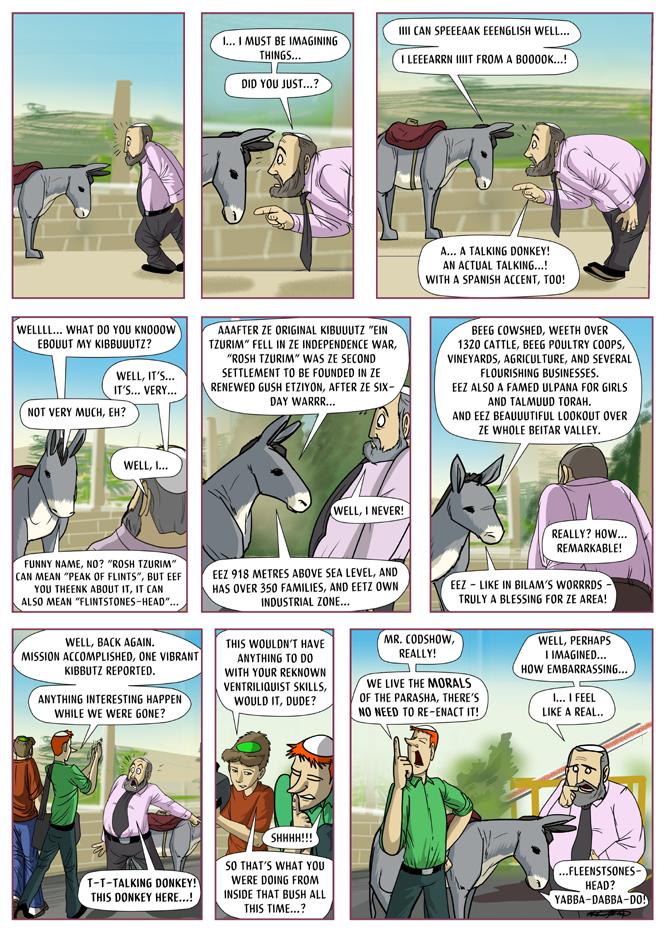

 Rabbi Yosef Ginsberg Regional Director, NCSY Israel
Rabbi Yosef Ginsberg Regional Director, NCSY Israel

In this week’s fascinating Parsha, Balak, there is a whirlwind of strange prophecies, blessings, curses, and even donkeys! With so much oddity and strangeness, in Baalam’s third blessing we encounter one of the most important Pesukim and blessings from the Torah. A Pasuk which every Jew says every day:
)ה:ד״כ(
How goodly are your tents, O Jacob, your dwelling places, O Israel! (24:5)
With such importance to Chazal to place this Pasuk before Pesukei Dezimra, we need to dive deeper to figure out why.
For starters, Rashi brings the Gemara is Bava Batra to teach us that Baalam saw how the entrances of our tents were not facing each other, in order to create privacy and embrace modesty.
Rav Yisroel of Ruzhin explains that we all have the ability to choose which direction to open our tents. Shir Hasharim Rabba tells us that Hashem says to us that if we make a tiny hole the size of a needle, he will enlarge the opening to that of a grand hall. In other words, if we do our best and try
just a little to move forward and open up in the right direction, Hashem will help us and guide us down that path. The key is to take that first step.
But how do we take that first step? In which direction is the right direction?
The Alter Rebbe of Chabad, Rav Shneur Zalman of Liadi famously talks about how the word המ, meaning what, represents the concept of Bitul/nullification. This is because instead of a person asking why or how, the question is what and/or for who. I.E. to make something not about yourself but rather to nullify yourself to Hashem or even to another Jew.
When a person does this, they have gone in the direction of ‘Tovu- goodness’. These are the tents of Yaakov and the dwelling places of Yisrael. May we able to nullify ourselves for others and may Hashem open up for us a new dwelling place speedily with the rebuilding of the third Beit Hamikdash.

When we look through Sefer Bamidbar, the section of the Torah that describes Bnei Yisroel’s travels through the desert, there are many events mentioned that
strongly affected the Jews. From the stories of Korach, the spies, and Pinchas, we see obvious lessons. Stay away from negative speech, keep proper kavod, never be afraid to do what is right; but what can we learn from parshat Balak? Rav Lord Jonathon Sacks mentions in one of his essays that for the entire story of Balak and Bilaam, none of the Israelites, includ ing Moshe himself, were aware of what was happening. If it is not a story about the Israelites themselves, why is it in Sefer Bamidbar at all?
The answer, seemingly, is that the message of the story of Bilaam was to teach the Jews of all later generations to learn a lesson from it. Even though the episode of Bilaam did not affect the Jewish people at that time, it was



















mentioned repeatedly by Moshe, Yehoshua, and even Micah and Nechemya later on.






We may ask, why did God choose us? Why are we special? The answer to this question is because He loves us. He doesn't love us because He chose us to follow His word, He chose us because of His love for us! Where is His love for us expressed? In the blessings of Bilam. Bilam, looking down on all the tribes of Israel, had no choice but to bless them.
As Moshe tells Bnei Yisroel in Parshat Ki Teitzei, “The Lord your God would not listen to Bilam but turned the curse into a because the Lord








.” By using the mouth of Bilam, who hated us, to bless us instead, G-d is demonstrating that through the power of love, even curses will turn to blessings.
























































